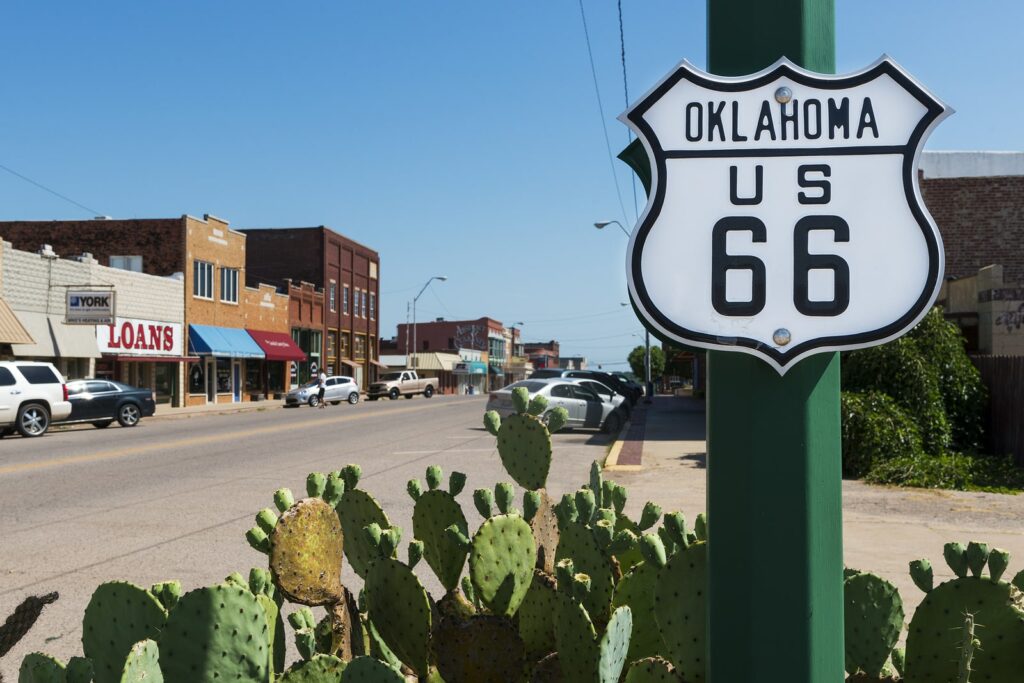Louisiana Passes Compact Nursing License Legislation

Update, February 19, 2019 at 9:50 a.m. CST: The projected implementation date for Louisiana has changed from December 1, 2018, to July 1, 2019. Original article: Louisiana legislators passed Senate Bill 202 last Thursday, making Louisiana the 31st state to enter the Enhanced Nursing Licensure Compact, according to a Louisiana State Board of Nursing press release. The bill, introduced by Sen. Barrow Peacock and Sen. Ronnie Johns on March 12 and signed into law last week, will enable Louisiana nurses to apply for compact licenses, which will allow them to work in any eNLC states without having to apply for a single state license. It also means current compact license holders can apply for Louisiana jobs after the implementation date. The state has six months to establish eNLC processes, and the current projected implementation date is Dec. 1, 2018, according to the state board press release. “[Passing] Senate Bill 202..was a team effort,” Sen. Peacock said in a statement to the Louisiana Hospital Association. “It was the way the process should work, and it was educating the members of the legislature of the importance of the nursing compact. This is a win for medical outcomes, for our nurses and for the great state of Louisiana.” While the exact impact on travel nurse activity is hard to measure, states that join the eNLC have a proven track record of getting more attention from travelers soon after, according to StaffDNA job board data. The eNLC went into effect early this year, updating the original Nursing Licensure Compact by adding uniform licensure and federal background check requirements. Five non-NLC states joined the eNLC when it was implemented, and Kansas brought the total to six after passing legislation in March. Of the remaining non-compact states, Indiana, Michigan, Rhode Island, New York, Vermont, Massachusetts and New Jersey currently have legislation in the works to join the eNLC. To see a detailed map of all states in the enhanced Nursing Licensure Compact, click here.
Oklahoma, West Virginia, Florida Adapt To Compact Nursing License Demand

More than a month has passed since five new states–Florida, Oklahoma, Wyoming, West Virginia and Georgia–joined the Enhanced Nursing Licensure Compact, which allowed these states to issue compact nursing licenses to new and practicing nurses. Nursing and licensure boards in these states are working to meet the demand for compact nursing licenses by adapting their procedures to process federal background checks, with varying levels of success. Today, we look at the process in three of the new states. We’ll have updates from Wyoming and Georgia next week. Oklahoma: Preparation, early applications make process smooth The Oklahoma Board of Nursing has received 859 applications from existing license holders and 76 for endorsement, said Jackye Ward, Deputy Director of Regulatory Services for the Oklahoma Board of Nursing. Oklahoma has 56,490 registered nurses and 18,381 licensed practical nurses, according to their FY 2017 Annual Report. The board squeezed processing time down to an average of 1.78 days, thanks to a combination of a well-prepared staff and early application acceptance date, Ward said. The board worked with state staff to accept compact nursing license applications as early as Jan. 5. Applicants “are getting fingerprints in for background checks so quickly,” Ward said. “It’s going really well. We’ve worked very closely with applicants and provided calls and callbacks to keep people updated on the process.” West Virginia: Interest strongest with nurses near state borders West Virginia’s Board of Examiners for Registered Professional Nurses is seeing similar demand, with about 1,500 out of 34,000 RNs applying for compact nursing licenses, executive director Sue Painter said. Most of the applicants live near the border and are looking for work opportunities in nearby compact states like Kentucky and Virginia, Painter said, which is precisely why the board pushed for the state to join the eNLC. “I was a nurse in another state and held a multistate license for a short period of time, and when I returned I went from being able to work in 25 states down to two,” Painter said. “The board has been in support of joining the eNLC for some time.” Application turnaround time has also been fairly rapid, Painter said, mostly because of the board’s ability to accept background checks electronically, which was implemented by a stringent approval process prior to the eNLC launch. This helped cut down a potential 18 week waiting period for returned background checks to five days. Misinformation has been the biggest speed bump in this process, as some staffing agencies have demanded for their nurses to still apply for single state licensure to work in West Virginia, but this has only happened for a handful of cases, Painter said. Florida: Criminal background check slowing licensing process Florida, the largest new state to join the eNLC–in terms of both active nurses and number of compact nursing license applications–is still struggling to meet the demand. As of Feb. 19, the Florida Board of Nursing has received 9,064 applications from current RNs and LPNs to upgrade to the compact nursing license, Florida Department of Health deputy press secretary Brad Dalton said. More than 5,000 applications were received in the first eight days after eNLC implementation. Of that number, 1,253 new compact nursing licenses have been issued, Dalton said. “The primary deficiency with the pending applications is the Livescan (fingerprint) criminal background check,” Dalton said. “Some applicants are also having to provide additional documentation for claiming Florida as their primary state of residence.” To address filing and processing issues, the board has revised information in their applications and on their website to hopefully help applicants better understand the background screening requirements, Dalton said. eNLC critical to addressing nursing shortage, patient care Despite the challenges, the boards a in new eNLC states are happy to be able to provide these new licenses for their state’s active nurses. “Florida, along with many states in the U.S., is committed to addressing nursing shortages,” State Surgeon General and Secretary Dr. Celeste Philip said in a press release. “By joining the enhanced Nurse Licensure Compact we are reducing regulatory burdens on nurses with the goal of increasing patient access to quality nursing care.” eNLC implementation probably won’t have a major effect on travel nursing in West Virginia, since most travelers would’ve already had their single state license, but the joining the compact will help reduce costs and time waiting for the old license, Painter said. “One of the most beneficial things is that the law (eNLC) makes the practice across state lines safer because we are allowed to share discipline information,” Painter said. “It’s easier to protect the public and provide the best professional care.”
Colorado, New Mexico Pass Compact Nursing License Legislation

The governors of New Mexico and Colorado signed legislation that adds their states to the enhanced Nurse Licensure Compact (eNLC), just one day ahead of the nationwide implementation deadline. This allows nurses with compact nursing licenses from each of those states to practice in any of the other eNLC member states without needing an in-state license. It also frees up any nurse with a compact nursing license from the other 27 eNLC states to practice in both Colorado and New Mexico. The signing of these two bills brings an end to the original Nurse Licensure Compact, leaving Rhode Island as the only original NLC state to not transition to the eNLC. Read our full breakdown of the new eNLC laws here, or visit the National Board of Nursing website.
The eNLC: How To Get A New Compact Nursing License

The National Council of State Boards of Nursing implemented the enhanced Nursing Licensure Compact on January 19 this year. On that day, five new states joined the compact. For those who already had compact nursing licenses that means you now have five more states where you can practice without having to get an in-state license: Florida, Georgia, Oklahoma, West Virginia, and Wyoming. For nurses with single state licenses in those five states, compact nursing licenses are now available. In almost every state, acquiring one starts with the same two things. The nurse must meet the new uniform licensure requirements (including completing a criminal background check) and have a proof of residency. Florida Florida is charging nurses with current active licenses $100 to convert to a multi-state license, a fee that seems to be middle of the road. The board will accept fingerprints done within the last 90 days when applying for a license upgrade. Fingerprints older than that will have to be redone. Florida nurses ready to apply can do so online through the state board’s website. The state board has also created a list of frequently asked questions for Florida nurses who want to know more. Georgia In addition to requiring proof of residency, Georgia requires applicants for a multi-state license to be fingerprinted for a background check through the COGENT Systems at least 48 hours before applying. The state board also reminds applicants that they can not leave fields on the application blank, that they need to download and complete the GBON Criminal Background Check Release Form to submit with their application, that they should enroll in e-Notify at nursys.com, and to include an accurate email address so that they can communicate with the board about their application. More information is available on the Georgia Board of Nursing website. Oklahoma Oklahoma is charging nurses with an existing license a $150 fee to transition to a new multi-state license. You can download the forms needed to verify Oklahoma as your state of residence from the state board website. You can also apply for a multi-state license online. West Virginia West Virginia has been accepting applications for a multi-state license since November. The process for West Virginia nurses is four steps and explained in more detail in a flow chart on the state nursing board’s website. West Virginia has by far the lowest fee for transitioning a license, approximately just $7, assuming the nurse has already paid for a license renewal for this year. After the fee has been paid, nurses should save their receipt. It indicates their application is pending board approval. Nurses interested in applying for a multi-state license must schedule an appointment to submit fingerprints for a state and federal background check with identtogo.com. An application for a multi-state license can be completed on the state board website. Since West Virginia has two separate nursing boards for registered and licensed practical nurses, LPNs need to visit a different website. Wyoming Wyoming nurses will need to pay $85 in fees to transition their license to a multi-state. Like the other states, an application is available on the state board website.
